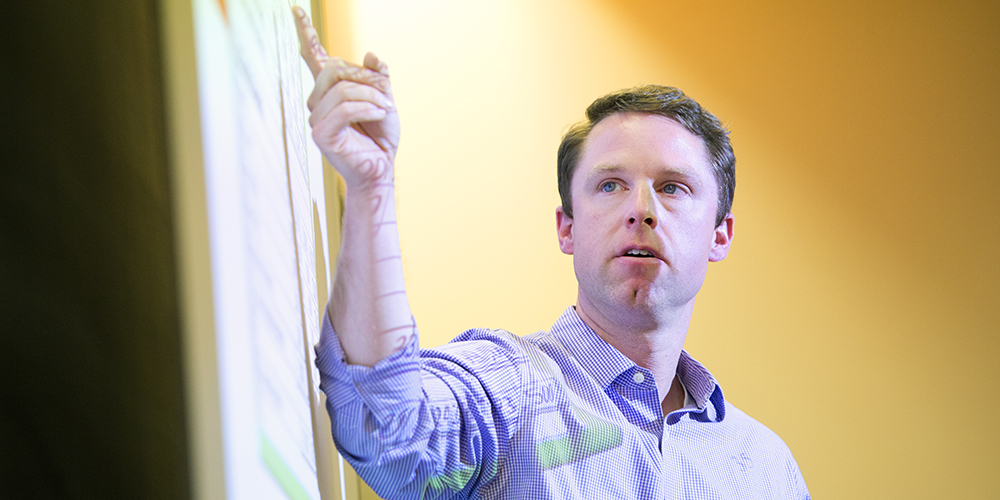September 28, 2018
In Accountants We (Mis)Trust

Professional accounting may not be the world’s oldest profession, but it has been around since the nineteenth century. And for most of that time, the industry has been allowed to police itself. All that ended with the dawn of the twenty-first century, when the Enron scandal shattered the public’s trust in accounting professionals and prompted the government to pass the Sarbanes–Oxley Act (SOX) in 2002, creating the Public Company Accounting Oversight Board (PCAOB). But this increased oversight begs a couple of questions: Have the misconduct and resultant punishment changed since SOX? And has the increased oversight added protections for the public?
In the first study to address these questions in a post-SOX world, Mark D. Sheldon in the Boler School of Business, along with coauthors J. Gregory Jenkins and Velina Popova, put misbehaving public accountants under the microscope in their article “In Support of Public or Private Interests? An Examination of Sanctions Imposed Under the AICPA Code of Professional Conduct,” published in the Journal of Business Ethics.
The authors examine 590 sanctions imposed by the American Institute of Certified Public Accountants (AICPA) against members for violating its Code of Professional Conduct (CPC) from 2008 to 2013. These years are important because they not only follow the passage of SOX but include the Great Recession (2008–2010) and its aftermath (2011–2013).
There are four questions the authors seek to answer: (1) Who reported the misconduct? (2) What sorts of misconduct were reported? (3) What kinds of punishment were meted out? and (4) Why? Was it to defend the public interest or to protect the private interests of the accounting profession?
The AICPA, the preeminent professional accounting association since 1887, has more than 412,000 members worldwide and maintains the only national-level CPC. The AICPA uses the CPC to monitor its members’ professional conduct. Since the passage of SOX, the AICPA has relied on outside stakeholders such as the government-created PCAOB, Internal Revenue Service (IRS), Securities and Exchange Commission (SEC), courts, and state boards of accountancy to report misconduct.
The authors find that with the increased outside oversight, the most common types of violations reported from 2008 to 2013 were: (1) acts discreditable to the profession, (2) substandard professional service, and (3) criminal acts. These misdeeds are strikingly similar to those committed by public accountants during the 1990s, before the passage of SOX.
What’s different are the sanctions imposed and the reason for imposing them. From 2008 to 2013, nearly half of the infractions resulted in AICPA membership termination, more than a third led to suspensions lasting over one and a half years, and the rest received admonishments. In contrast to studies examining misconduct during the 1990s, the sanctions were imposed largely to defend the public interest, especially during the Great Recession. Stakeholders such as the PCAOB, IRS, and SEC reported almost exclusively on misconduct related to the public interest. The AICPA and state boards, too, reported on public interest matters, but they were the only watchdogs calling out members for misconduct that hurt the private interests of the accounting profession.
In the end, the government-mandated scrutiny provided by stakeholders such as the PCAOB seems to have done what it was supposed to do: defend the public interest. And the public isn’t the only one to benefit. The AICPA now has a critical partner in policing and punishing the misdeeds of its members.